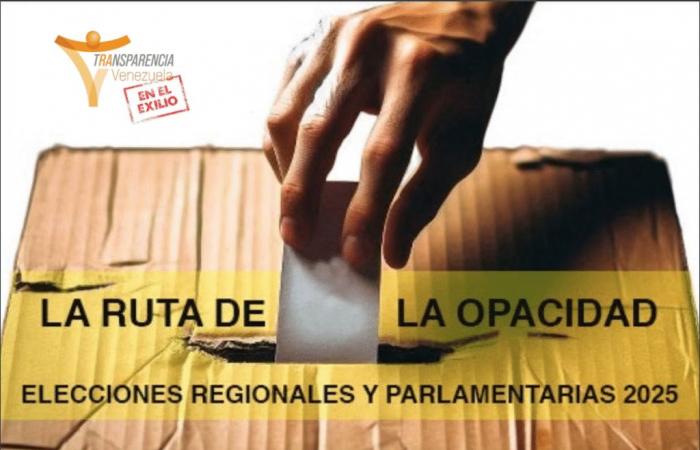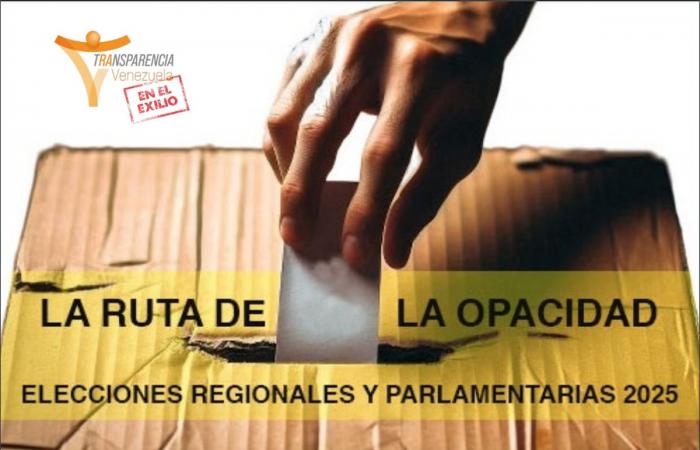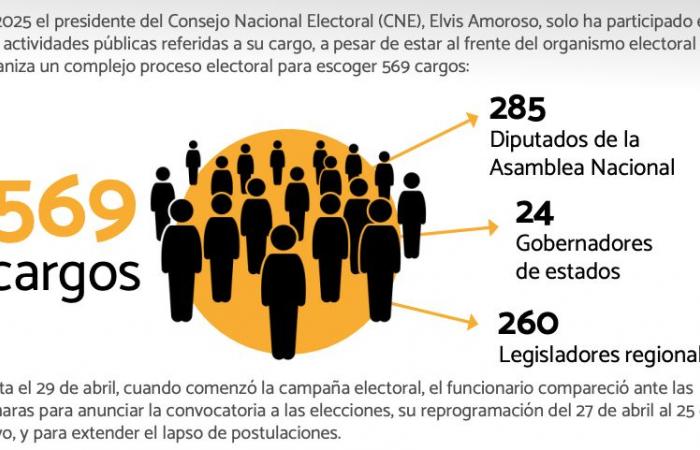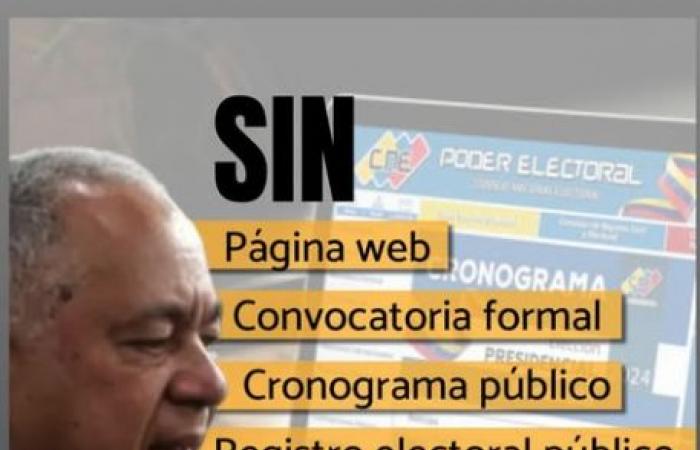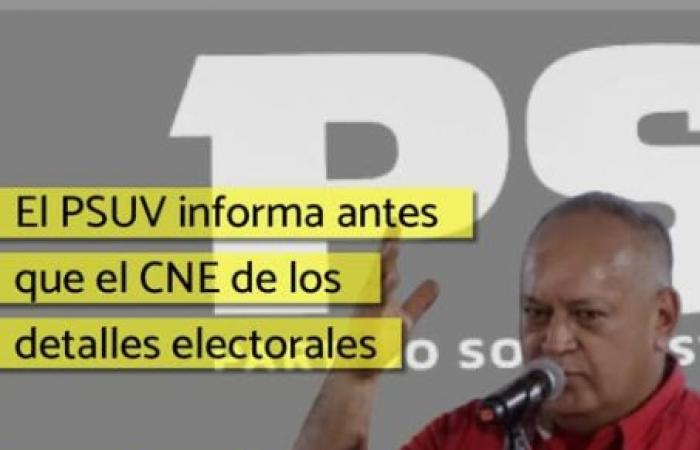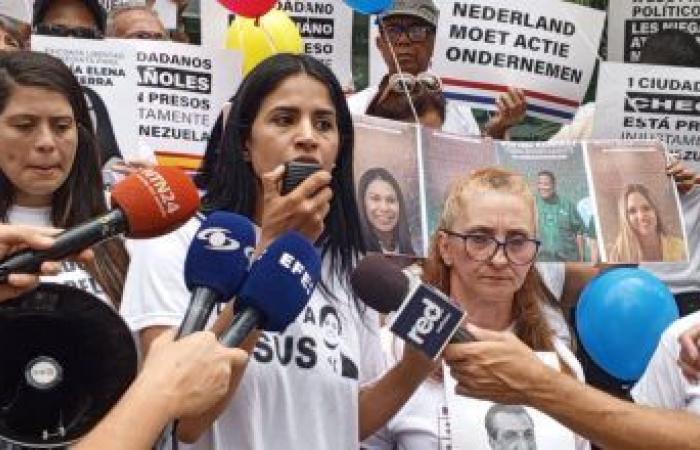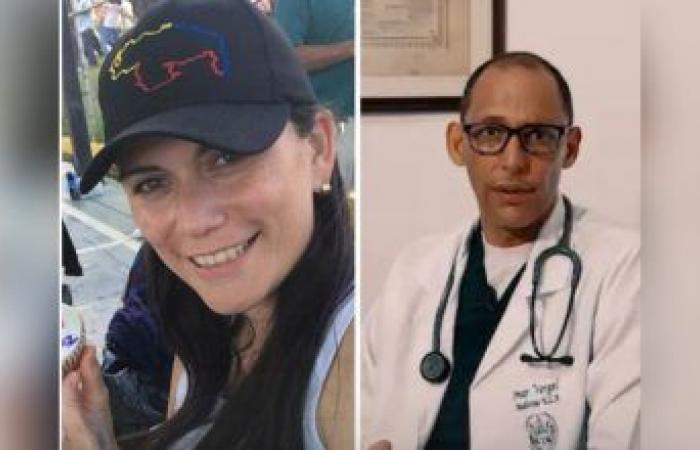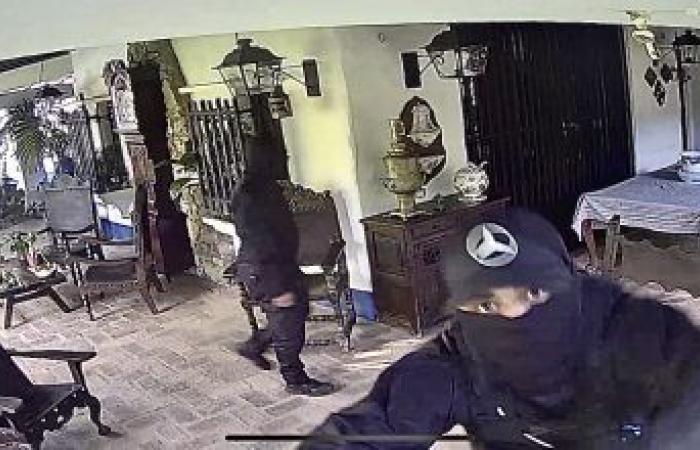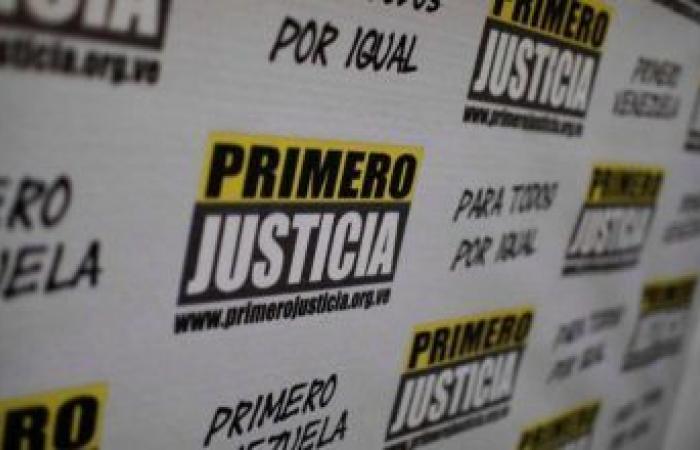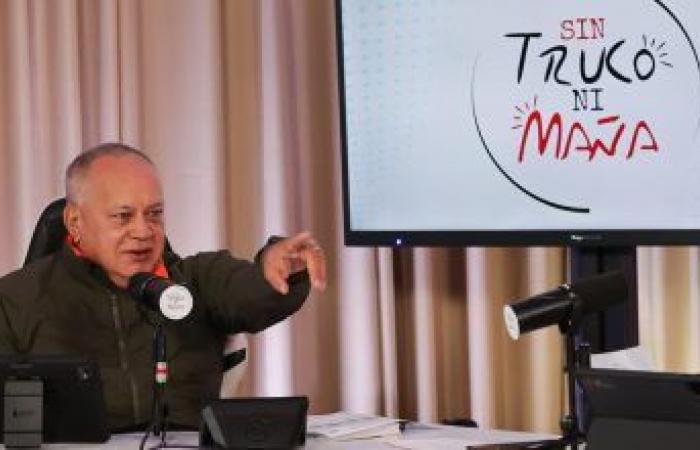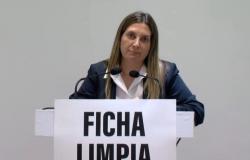The Venezuelan Transparency Report, entitled “The Route of Opacity”, significantly documes the lack of transparency and the irregularities that have characterized the process for regional and parliamentary elections, planned for 2025 in Venezuela. This process seeks the election of 569 positions, including 285 deputies to the National Assembly, 260 regional legislators and 24 states governors. However, despite the complexity of the event, the National Electoral Council (CNE), chaired by Elvis Amoroso, has maintained a low profile, participating in only three public activities directly related to its position until the beginning of the electoral campaign on April 29. These activities included the announcement of the call, the reprogramming of the election date (from April 27 to May 25), and the extension of the applications.
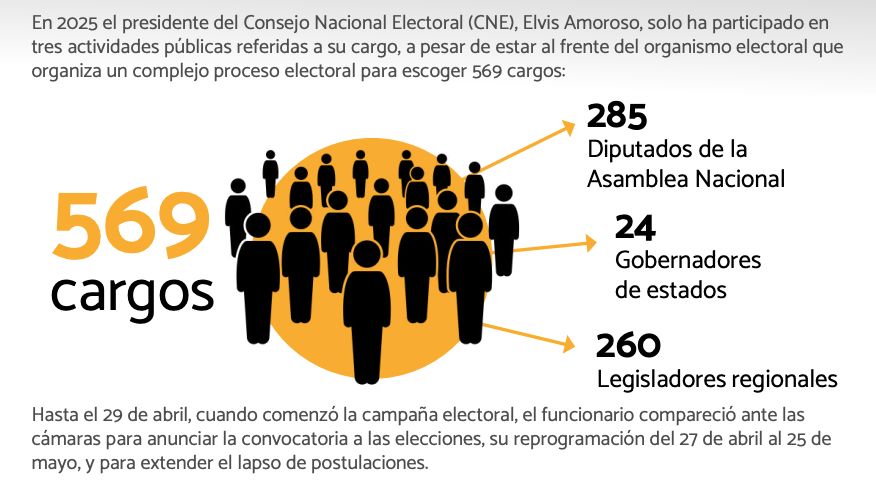
One of the fundamental problems indicated by Transparency Venezuela is the breach of the electoral norms established in the Organic Electoral Processes Law (LOPRE). The call to the elections, although announced by the president of the CNE in a televised statement on January 27, 2025, did not comply with the provisions of article 42 of the LOPRE, which requires that the call be published in the Electoral gazette of the Bolivarian Republic of Venezuela.
In addition to the call, the electoral schedule, a crucial document that details the stages and actions of the process, has not been officially published. Article 42 of the LOPRE establishes that the schedule must be made public in the same act of call and the electoral gazette. However, the electoral gazette has not been published in 2025. The initial schedule, which was distributed unofficially by WhatsApp as photographs of an impression, had no formal publication in the official channels of the CNE. The reprogramming of the election date as of May 25, announced on March 27, also communicated on television without the corresponding publication in the electoral gazette or the formal dissemination of the adjusted schedule.
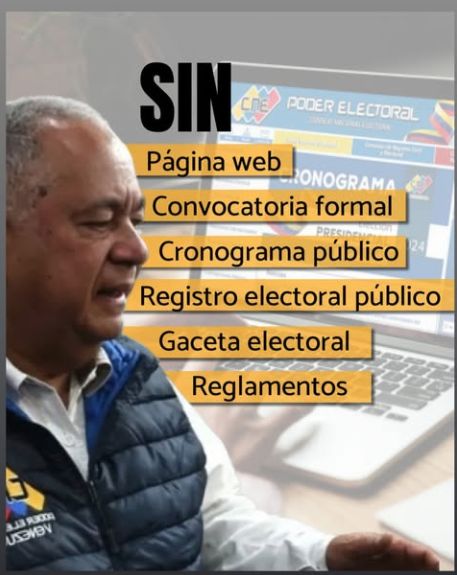
Absence of information channels
The absence of official information channels is a recurring point. The CNE website (CNE.gob.ve) has been offline since the night of July 28, 2024, coinciding with the announcement of results of presidential elections that were declared fraudulent by the opposition and not validated by the Carter Center. Although Rector Conrado Pérez has affirmed since January 2025 that the “hacking” of the site had been overcome and that he would soon be available, the page remains inactive almost a month after his last public statement in this regard. This website was the legal means of public consultation of the Electoral Registry, disaggregated results, regulations and informative updates. Although the main domain is inactive, they are active subdomains for intranet, exceptions to the electoral service, email and the system of subaltern organisms, as well as the Institute of High Studies of the Electoral Power Tibisay Lucena (IAEPE-TL). The lack of an official website has complicated communication with the electorate, forcing communication to be carried out directly between officials and party representatives.
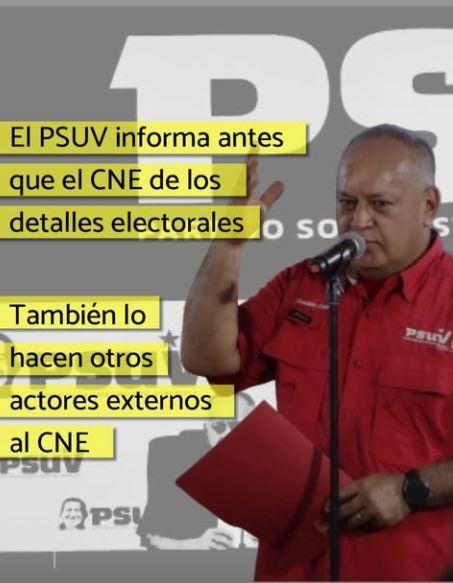
Who spread the official information of the elections in Venezuela?
This opacity of the CNE has led to third actors who disseminate electoral information, mainly spokesmen of the PSUV official party. The Government Party has reported on details of the process on at least three occasions, with statements that in some cases have been subsequently ratified by the CNE, and in others not. For example, the general secretary of the PSUV, Diosdado Cabello, announced details about the elections in the newly created Guayana Esequiba state (created in March 2024), including that eight deputies will be chosen to the National Assembly. A month later, Cabello said that the National List of Deputies to the National Assembly would increase from 48 to 50 with the incorporation of the representatives of Guayana Esequiba, raising the total of the AN to 285 deputies. This last fact was confirmed by the president of the CNE, Elvis Amoroso, two days after the hair announcement. Similarly, Jorge Rodríguez announced in a PSUV press conference the number of candidacies received by the CNE (6,687), a fact that was confirmed hours later by the CNE through a statement distributed by the Telegram channel of the Minister of Information and Communication, not by official channels of the electoral body. Another actor who has disseminated information is the deputy Aníbal Sánchez, who has shown interfaces of application platforms, the location of cards on the ballot and data on voting centers through his account in X.
The election in the Guayana Esequiba state highlights the opacity of the process. Although the Organic Law for Guyana Esequiba establishes the limits of the territory claimed by Venezuela, the CNE has not directly informed where the voters of this new State will vote. Rector Conrado Pérez mentioned in an interview that the election would be in three municipalities, but only named Sifontes from the Bolívar state. Subsequently, a candidate for governor, Luis Felipe Honoe, said that the election would be held in the Sifontes and Gran Sabana (Bolívar) and Antonio Díaz (Delta Amacuro) municipalities. Honoe indicated that these locations “were part until recently” of those states. However, the CNE has not confirmed this information or clarified whether the voters of these municipalities will also vote by the authorities of the states where they currently reside. Additionally, there is a discrepancy in the information about the number of deputies that will represent Guyana Esquiba in the National Assembly, with Diosdado Cabello mentioning eight and the rector Conrado Pérez publishing in his column a distribution that assigns six deputies to the AN for this entity. The allocation of eight deputies to Guayana Estequiba, with approximately 97,500 voters, would give the same number of deputies as seven other states with a much greater electoral population (according to the registration of 2024), and contravene the constitutional calculation based on the population. The law that created the Guayana Esequiba state establishes that the seat of the public powers will be tumerem (Sifontes, Bolívar municipality) “until a practical and mutually acceptable solution is reached with the Cooperative Republic of Guyana.”
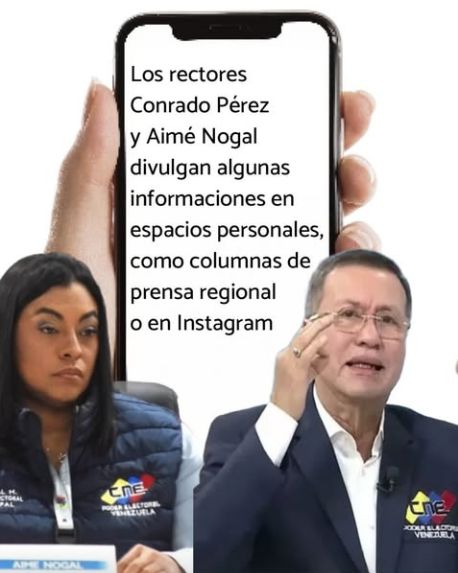
Irregularities plagued the process of elections in Venezuela
Other irregularities in the process include the breach of activities established in the schedule. The electoral gazette publication of the list of the members of the subaltern electoral agencies was not carried out. The audit to the electoral registry, scheduled for March 24, was not fulfilled on the date. Several political parties confirmed that there was no formal court of the electoral registry or the corresponding audit on the planned date. The audit was carried out at the time, at the end of the week of applications (April 7 to 11). The final electoral registry, which should be published on April 3 and is of public consultation on the CNE website, has not been published either. There is contradictory information about the total number of voters. A preliminary cut published by Rector Conrado Pérez on March 31 in his column threw 21,603,544 voters, the result of new inscriptions and a purification of deaths. However, on April 3, the same rector gave a different figure in an interview (21,507,162 voters), mentioning 18,720 new registered, a figure that does not coincide with the variation with respect to the last record used in the presidential elections of 2024 (21,392,464 voters), which showed a positive variation of 114,698 voters.
Finally, the management of political disqualifications has been another source of opacity. Although 52 applications were submitted to raise disqualifications and 82 to impose them, there was no public information about affected people. Political leaders such as José Simón Calzadilla, of the Movement for Venezuela, and Antonio Ecarri, of the Pencil Alliance Party, denounced that they learned of their disqualifications or those of their relatives (Antonio Ecarri’s father) when trying to apply candidacies. The Calzadilla party could not apply for any candidacy.
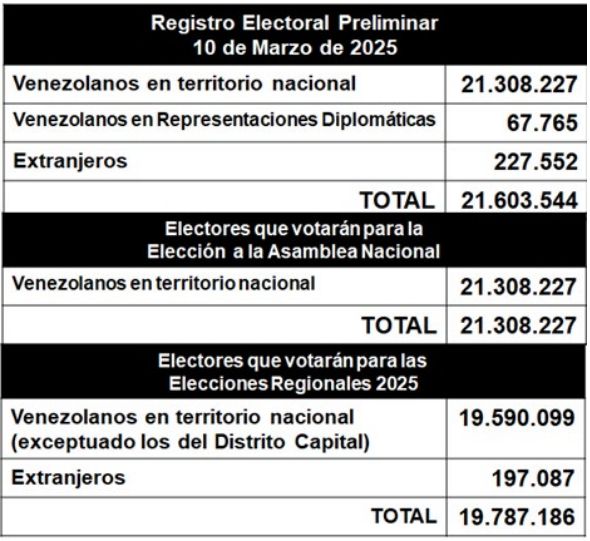
Opacity
The report “The Route of Opacity” of Transparency Venezuela highlights an electoral process marked by the lack of compliance with the electoral law, the absence of official information channels accessible to the public, partialized and contradictory communication, and the dissemination of key information by political actors external to the CNE.
The situation of the inactive website, the non -publication of the schedule and the electoral gazette, and the lack of clarity in aspects such as the election in Guyana Esquiba and the electoral registry, are significant points that show the opacity denounced by transparency Venezuela. These findings constitute the main conclusions of the analysis presented by the organization, showing the challenges for transparency in these elections.
The report itself acts as an implicit recommendation when detailing these irregularities, suggesting the need for greater opening, compliance with the official official law and communication by the electoral body.
Related news

mayo 9, 2025
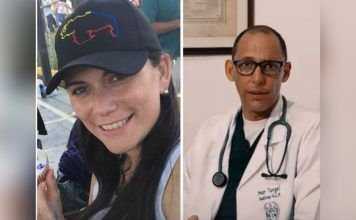
mayo 9, 2025
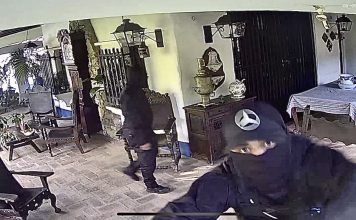
mayo 9, 2025
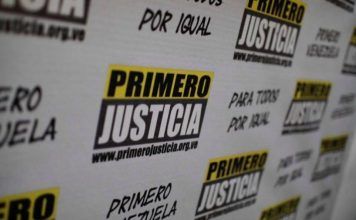
mayo 9, 2025
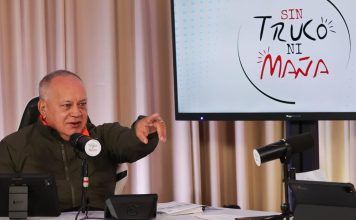
mayo 9, 2025

mayo 9, 2025
Independent journalism needs the support of its readers to continue and ensure that the awkward news that you do not want you to read, continue to be at your fingertips. Today, with your support, we will continue working hard for a journalism free of censures!Support El Nacional

